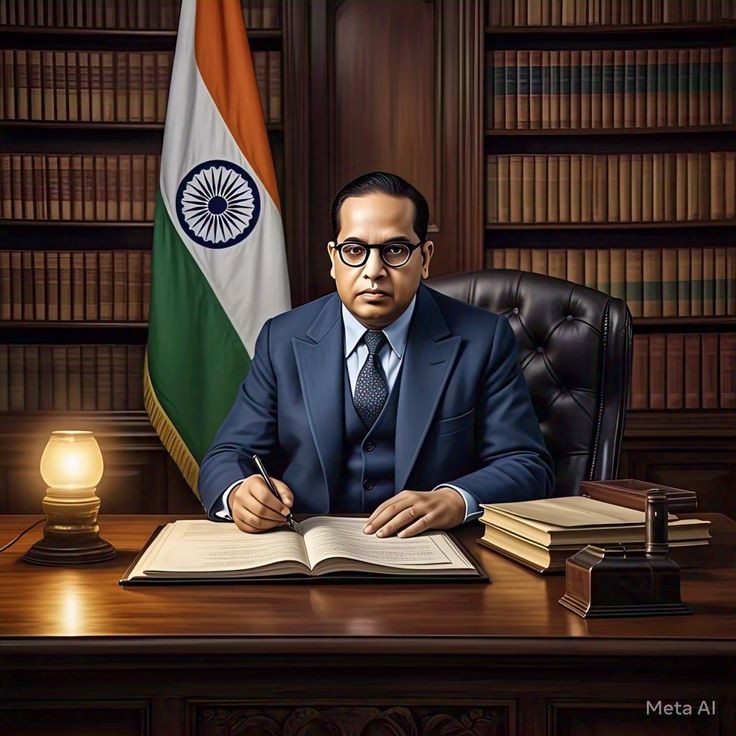
Honouring the Architect of Modern India: 134th Birth Anniversary of Dr. B.R. Ambedkar
Varun Mourya
April 14, 2025 marks the 134th birth anniversary of Dr. Bhimrao Ramji Ambedkar, a towering figure in Indian history whose legacy continues to inspire generations. Fondly remembered as Babasaheb, he was not only the chief architect of the Indian Constitution but also a fearless social reformer, jurist, economist, and champion of equality and human rights.
Across the country, Ambedkar Jayanti is being celebrated with great respect and devotion. From floral tributes at his statues and memorials to seminars, processions, and educational events, the day serves as a reminder of his relentless struggle against caste discrimination and his vision for an inclusive, just India.

Biography of Dr. B.R. Ambedkar
Early Life and Education
Dr. Bhimrao Ambedkar was born on April 14, 1891, in Mhow (present-day Dr. Ambedkar Nagar, Madhya Pradesh), into a Mahar family, which was considered “untouchable” in the caste system. Despite facing severe social discrimination, he excelled academically. His father, Ramji Maloji Sakpal, served in the British Indian Army and emphasized the importance of education.
Ambedkar earned multiple degrees from prestigious institutions. He studied economics and political science at Elphinstone College, University of Bombay, before securing scholarships to study abroad. He earned doctorates from Columbia University (USA) and the London School of Economics (UK), becoming one of the most highly educated Indians of his time.

Fight Against Untouchability and Social Injustice
Upon returning to India, Ambedkar began his lifelong mission to eradicate caste-based discrimination. Through writings, speeches, and organized movements, he challenged the orthodox Hindu social order. His landmark works like Annihilation of Caste and The Problem of the Rupee reflected his deep intellectual and moral convictions.
In 1932, he signed the Poona Pact with Mahatma Gandhi, securing reserved seats for the Depressed Classes in the provincial legislatures. He also founded organizations like the Bahishkrit Hitakarini Sabha and later the Scheduled Castes Federation, aimed at uplifting marginalized communities.
Father of the Indian Constitution
After independence, Dr. Ambedkar was appointed as the Chairman of the Drafting Committee of the Indian Constitution. He played a pivotal role in crafting a Constitution that upheld liberty, equality, and fraternity, and laid the legal foundation for a secular, democratic republic. He is widely regarded as the Father of the Indian Constitution.

Later Life and Legacy
Ambedkar served as India’s first Law and Justice Minister in Jawaharlal Nehru’s cabinet but resigned in 1951 over differences on the Hindu Code Bill. In 1956, he embraced Buddhism along with millions of followers, rejecting the caste system entirely.
Dr. B.R. Ambedkar passed away on December 6, 1956. In 1990, he was posthumously awarded the Bharat Ratna, India’s highest civilian award.

Legacy and Relevance Today
Dr. Ambedkar’s ideas resonate strongly even today as India continues to grapple with issues of caste, inequality, and social justice. His life is a symbol of courage, intellect, and the power of education to transform society. On this 134th birth anniversary, we salute the man whose vision continues to guide India toward a more equitable future.



